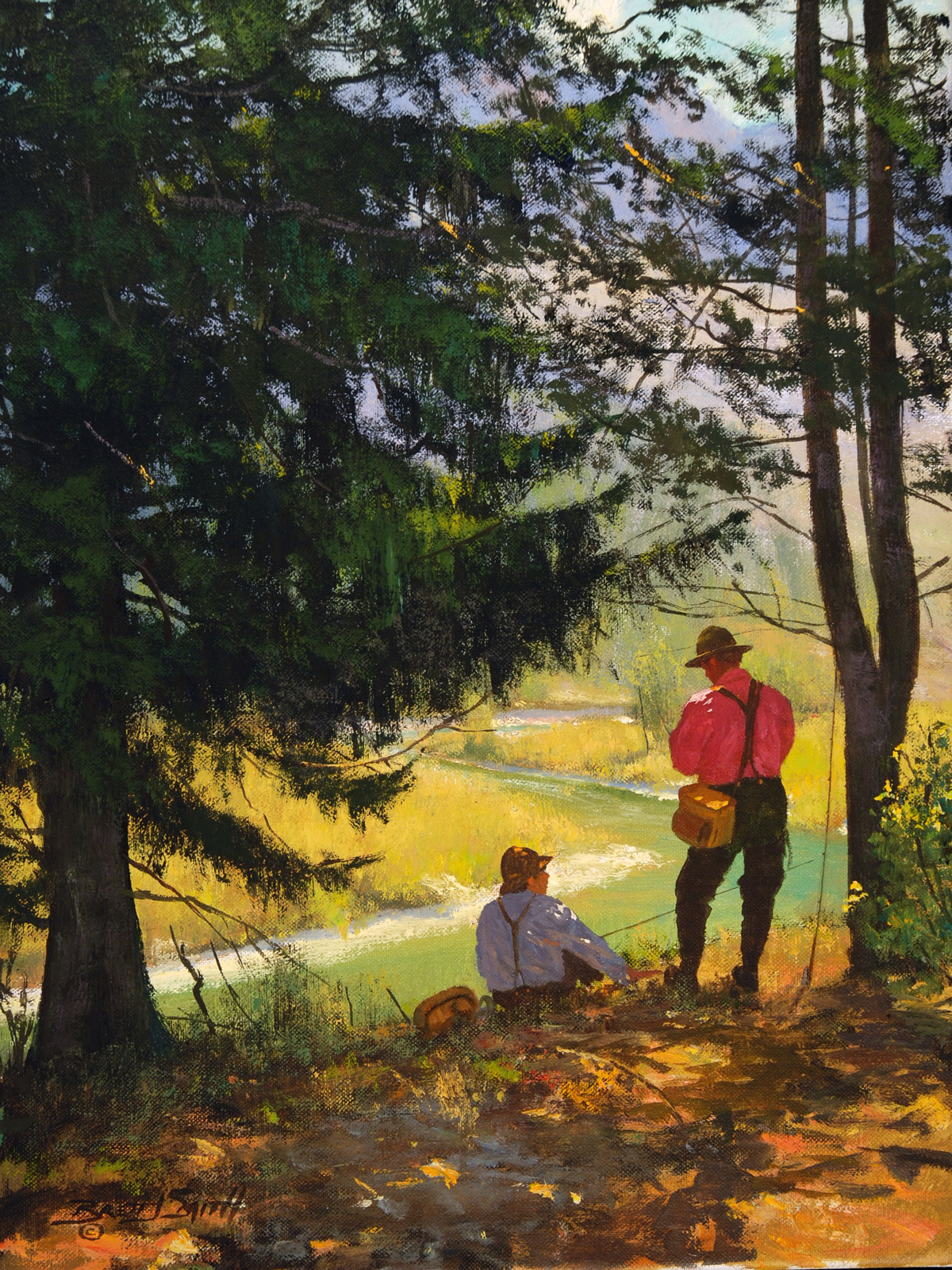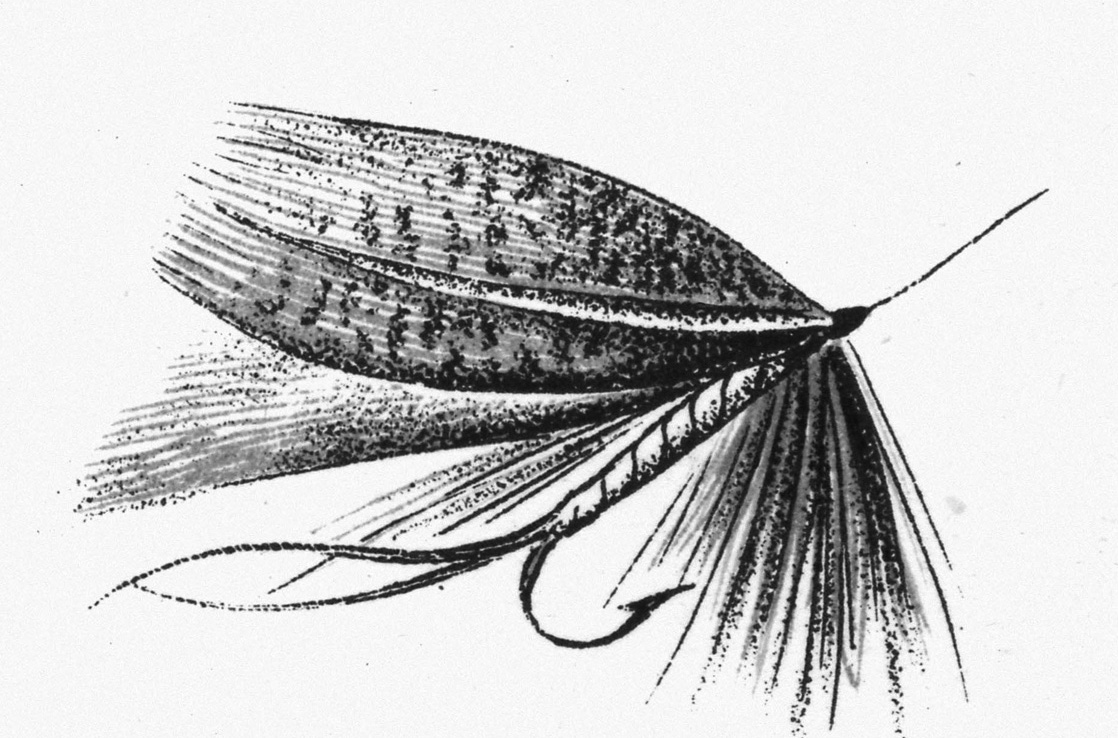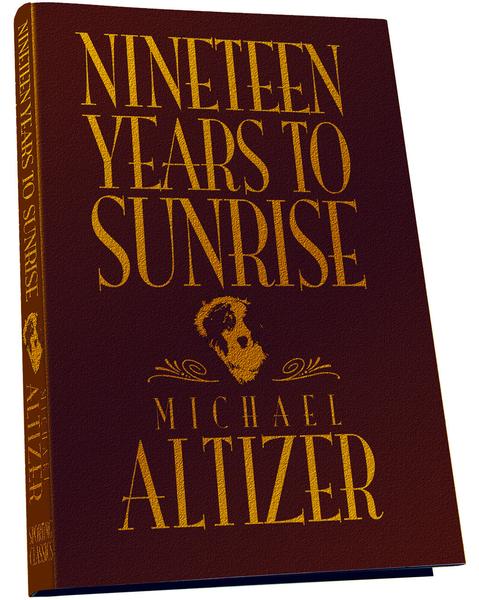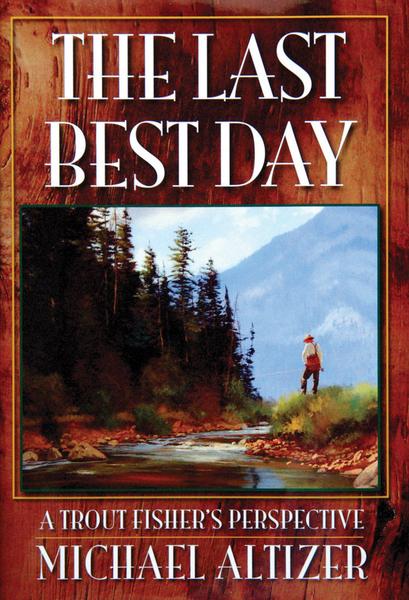 Carl Lear loved his father’s fly rod. At eight years old, he couldn’t remember a time when that rod had not been a part of his life, as it would continue to be for the rest of his days.
Carl Lear loved his father’s fly rod. At eight years old, he couldn’t remember a time when that rod had not been a part of his life, as it would continue to be for the rest of his days.
The rod was a deep golden color with matching fly line that was much easier for him to handle than the twisted monofilament on his old spinning rod.
Before Carl was born, Burl Lear had never seen a fly rod for real, though he’d seen photographs of them. So when he spotted one at Ward’s Hardware a few days before Carl came along, he couldn’t resist picking it up—though with his first child due any day, he felt he really couldn’t spend the eight dollars it would take to buy it.
But God has His ways of directing men’s destinies and, with all the overtime Burl was able to work after Carl was born, he eventually came up with enough extra money to put the new rod into layaway.
By the following spring he was fishing with it. And he caught trout—trout that were a crucial part of his family’s food supply, trout he cherished, trout he loved.
 Little Carl loved trout as well. Burl would show them to him when he’d bring them home, and let Carl pick them up and hold them. Carl caught his first trout when he was 3, sitting on Burl’s lap on Roaring Fork, and by the time he turned 5, he was fishing alongside his dad.
Little Carl loved trout as well. Burl would show them to him when he’d bring them home, and let Carl pick them up and hold them. Carl caught his first trout when he was 3, sitting on Burl’s lap on Roaring Fork, and by the time he turned 5, he was fishing alongside his dad.
Burl Lear was a trout fisherman in every sense, and Carl took after him. From the beginning, Carl had an aptitude for catching trout, and as he grew, he began to feel the need to catch a full limit of eight fish all on his own.
Such a thing can weigh heavy on a man, and it slowly began weighing on Carl. In mid-summer of his seventh year, he caught five trout in one day over on Little Tumblin’ and, a month later, he managed to catch six. But by the time trout season ended in early November, Carl Lear had turned eight, and still hadn’t attained his goal.
Good fathers understand their sons, and Burl Lear understood full well that catching that first limit of trout had become Carl’s aspiration, if not his obsession. Burl wanted to explain to him that limits don’t matter, and that the fishing itself is what means most. But for now he held his tongue. And by the time opening day rolled around the following April, Burl Lear knew precisely where they would go.
Wolf Creek was a stream they rarely fished. It was a long way to go and hard place to get to, and few fishermen ever made the effort.
Especially on opening day.
Carl would remember that day for as long as he lived—how Burl came into his room at 3 a.m., how he rolled out of bed and slipped into his jeans and wool shirt before he’d fully awakened, and how his dad helped him tie his shoes as he rubbed the sleep from his eyes.
At 4:45 they stopped at an all-night diner and Burl let Carl order a hamburger instead of eggs, then cautioned him not to tell Mama. They parked a quarter-mile from the stream as the first hint of daylight began tinting the eastern horizon, and Burl helped him on with his coat, scruffed up his hair and said, “How about you take the fly rod this morning?”
Young Carl could not believe what he was hearing. And, as they walked across the meadow, he couldn’t help gazing up at the old spinning rod his dad was carrying and then down at the fly rod in his own hands, and feeling the sweet anticipation of this unexpected opportunity.
The creek came rolling out of the woods, over the bedrock and through the boulders, then into a broad bending pool that stretched out below.

“This is a good hole of water,” Burl assured him. “You know how to fish—so fish it slow and fish it careful. I’m gonna leave you here and move downstream. Holler if you need me.”
And with that, Carl Lear was alone.
Carl’s first underhand cast was with a minnow, into the edge of the nearest run. On his fourth drift, he hooked his first fish of the morning and worked it out onto the gravel bar at his feet. Pouncing on the trout with both hands, he removed the hook and laid his prize in the meadow grass behind him. Ten minutes later, he caught a second one. It was a noteworthy beginning.
But an hour passed before Carl caught another fish, this one on a worm. He eased downstream, and in the next hour he caught two more.
It was now 10:45, and Carl had five trout. He was very pleased, but he dared not allow himself to think he might actually catch his limit. Up and down the pool he worked, fishing the narrow upper section below the rocks, the mid-section where the creek flared wide, and the tailing runs that curved away into the woods, where his dad had disappeared three hours earlier.
By noon and still stuck on five fish, Carl grew hungry. The cheese sandwich his mother had made for him last night tasted good, and he washed it down with water from the stream as his dad reappeared.
“How ya doin’?” Burl asked, and Carl took him by the hand and walked him up the bank and showed him his five trout, all lined up neatly in the grass. His father patted him on the shoulder, told him he was proud of him, and then said he had seven fish of his own.
Realizing his dad needed only one more trout, Carl began to worry that they might leave before he had a chance to fill out his own limit.
“Can we keep fishing?” he asked, trying to disguise his concern.
“Absolutely,” Burl reassured him, as Carl lifted the fly rod from the grass.
“Here, let me put on a little bread ball,” Burl suggested, and he took the rod from Carl. For a moment, Carl thought his dad might reclaim it for himself, but to his great relief, Burl handed it back.
“There, try that,” he said. On his fourth drift, Carl’s line came tight.
“Daddy! It’s a big one!” Carl exclaimed.
The trout was much larger than any he had ever caught, 14 inches at least. Up and down the pool it ran as Carl held on, waiting for his father’s assistance. But Burl uncharacteristically remained seated on the rocks and watched in silence, until Carl finally worked the big fish out onto the gravel.
Only then did he speak.
“That’s six,” Burl declared, calmly. “Now hand me your rod,” and he squeezed another tiny ball of bread onto the hook and handed it back.
Within minutes, Carl had caught his seventh trout.
Carl Lear had never caught seven trout in one day, and the realization of what might finally be happening nearly overwhelmed him. He was dead even with his dad, who to Carl’s dismay now asked for his fly rod back.
Carl handed it to him, dutifully.
 For two or three minutes Burl sat there, holding the rod, watching the water and feeling the line. Then, reaching into his pocket for his clippers, he cut eight inches off the end of the leader and tied on a new hook before molding one more ball of bread around its shank. Then he stood and walked straight past Carl, eyeing the run from one end to the other before turning to his son and saying, “There . . . right there. Cast just above that boulder and let your line swing below it.”
For two or three minutes Burl sat there, holding the rod, watching the water and feeling the line. Then, reaching into his pocket for his clippers, he cut eight inches off the end of the leader and tied on a new hook before molding one more ball of bread around its shank. Then he stood and walked straight past Carl, eyeing the run from one end to the other before turning to his son and saying, “There . . . right there. Cast just above that boulder and let your line swing below it.”
And he handed the fly rod back.
Until the day that Burl Lear died, they talked about that trout. It hit at the end of Carl’s third drift, and with his dad at his side, he worked it into the shallows, where Burl finally got it into his net.
It took Carl decades to truly understand the significance of what happened that day, and to learn for himself what his father already knew—that a man’s life is measured by much more than the fish he has caught or the animals he has taken, and that often, those of greatest value are the ones you choose not to kill.
They cleaned their trout on the little gravel bar, then placed them in Burl’s canvas creel. For Carl, it was the end of the only real dream he’d ever had, and the beginning of another he had yet to fully grasp—the dream of becoming the fisherman and the person his father already knew he could be.
Carl Lear grew to be an old man, older than his father ever grew, and the dreams of both were eventually fulfilled. And as he looked back at that fateful day on Wolf Creek, he remembered how much that first limit of trout meant to him.
But to Burl, it had meant even more—far more than the taking of one last trout of his own that day could ever have meant. For when they got home, Carl’s mother carefully wrapped their catch in tin foil and set their fish in the freezer.
All fifteen of them.
Signed copies of Michael Altizer’s books, The Last Best Day and Nineteen Years To Sunrise, can be ordered online at SportingClassicsStore.com or simply call (800) 849-1004. The author always welcomes and appreciates your comments, questions and input. Please keep in touch at Mike@AltizerJournal.com.





